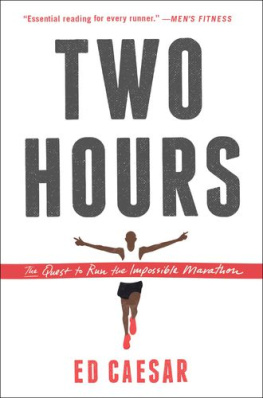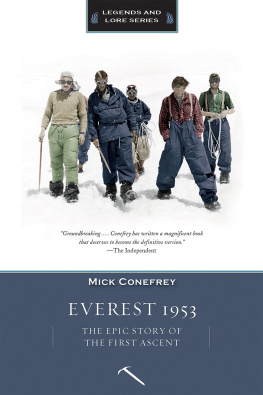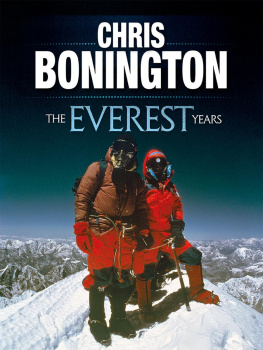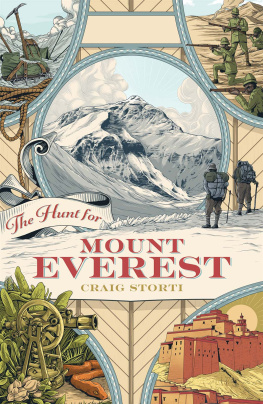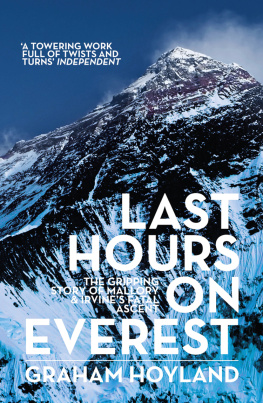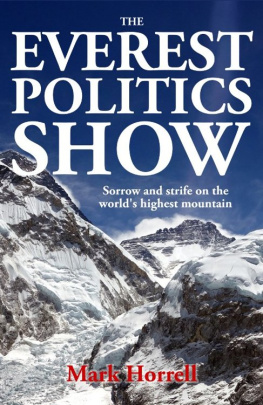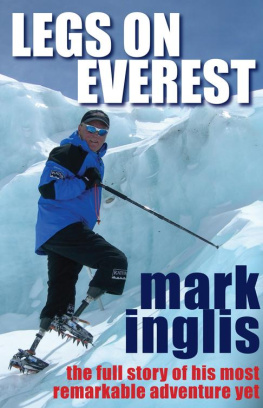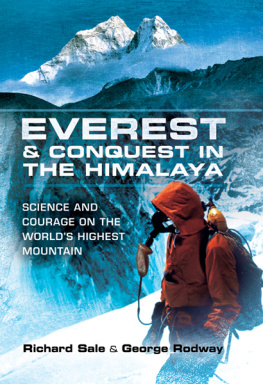Ed Caesar - The Moth and the Mountain: A True Story of Love, War, and Everest
Here you can read online Ed Caesar - The Moth and the Mountain: A True Story of Love, War, and Everest full text of the book (entire story) in english for free. Download pdf and epub, get meaning, cover and reviews about this ebook. year: 2020, publisher: Avid Reader Press / Simon & Schuster, genre: Detective and thriller. Description of the work, (preface) as well as reviews are available. Best literature library LitArk.com created for fans of good reading and offers a wide selection of genres:
Romance novel
Science fiction
Adventure
Detective
Science
History
Home and family
Prose
Art
Politics
Computer
Non-fiction
Religion
Business
Children
Humor
Choose a favorite category and find really read worthwhile books. Enjoy immersion in the world of imagination, feel the emotions of the characters or learn something new for yourself, make an fascinating discovery.
- Book:The Moth and the Mountain: A True Story of Love, War, and Everest
- Author:
- Publisher:Avid Reader Press / Simon & Schuster
- Genre:
- Year:2020
- Rating:3 / 5
- Favourites:Add to favourites
- Your mark:
- 60
- 1
- 2
- 3
- 4
- 5
The Moth and the Mountain: A True Story of Love, War, and Everest: summary, description and annotation
We offer to read an annotation, description, summary or preface (depends on what the author of the book "The Moth and the Mountain: A True Story of Love, War, and Everest" wrote himself). If you haven't found the necessary information about the book — write in the comments, we will try to find it.
Ed Caesar: author's other books
Who wrote The Moth and the Mountain: A True Story of Love, War, and Everest? Find out the surname, the name of the author of the book and a list of all author's works by series.
The Moth and the Mountain: A True Story of Love, War, and Everest — read online for free the complete book (whole text) full work
Below is the text of the book, divided by pages. System saving the place of the last page read, allows you to conveniently read the book "The Moth and the Mountain: A True Story of Love, War, and Everest" online for free, without having to search again every time where you left off. Put a bookmark, and you can go to the page where you finished reading at any time.
Font size:
Interval:
Bookmark:
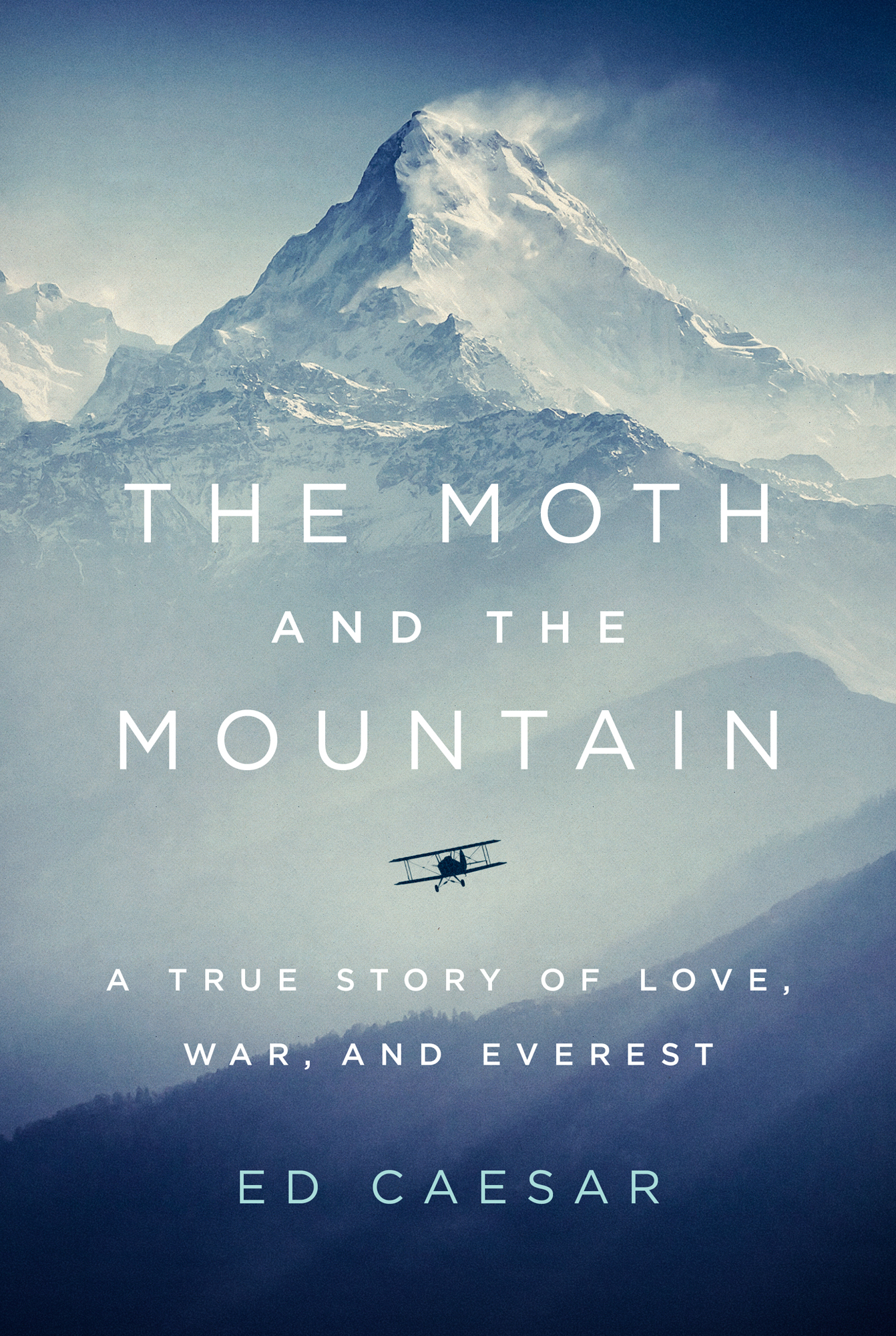

ALSO BY ED CAESAR
Two Hours
A VID R EADER P RESS
An Imprint of Simon & Schuster, Inc.
1230 Avenue of the Americas
New York, NY 10020
www.SimonandSchuster.com
Copyright 2020 by Ed Caesar
All rights reserved, including the right to reproduce this book or portions thereof in any form whatsoever. For information, address Avid Reader Press Subsidiary Rights Department, 1230 Avenue of the Americas, New York, NY 10020.
First Avid Reader Press hardcover edition November 2020
AVID READER PRESS and colophon are trademarks of Simon & Schuster, Inc.
For information about special discounts for bulk purchases, please contact Simon & Schuster Special Sales at 1-866-506-1949 or .
The Simon & Schuster Speakers Bureau can bring authors to your live event. For more information or to book an event, contact the Simon & Schuster Speakers Bureau at 1-866-248-3049 or visit our website at www.simonspeakers.com.
Interior design by Kyle Kabel
Maps by Jeffrey L. Ward
Jacket design by Pete Garceau
Jacket Photographs: Mountain by SAIKO3P/iStock/Getty Images Plus; plane by Claudiostocco/iStock/Getty Images Plus
Author photograph Gail Secker
Library of Congress Cataloging-in-Publication Data has been applied for.
ISBN 978-1-5011-4337-3
ISBN 978-1-5011-4339-7 (ebook)
For my mother, Janie Caesar, and in memory of my father, Lieutenant Commander Ben Caesar, Royal Navy (19381982)
Have we vanquished an enemy? None but ourselves. Have we gained success? That word means nothing here. Have we won a kingdom? No and yes. We have achieved an ultimate satisfaction fulfilled a destiny. To struggle and to understandnever this last without the other; such is the law.
George Mallory, Mont Blanc from the Col du Gant by the Eastern Buttress, Alpine Journal, 1918
Then, with many other men,
He was transported in a cattle-truck
To the scene of war.
For a while chance was kind
Save for an inevitable
Searing of the mind.
Herbert Read, Kneeshaw Goes to War, 1918
Keep smiling.
Maurice Wilson, letter to Enid Evans, 1933

March 20April 10, 1934
B efore he began his trek to Mount Everest, Maurice Wilson changed into a magnificent costume. He was thirty-five years old. The fine blond hair of his youth had run to silver and thinned to a widows peak. Two or three machine-gun scars blotted the skin on his left arm and back, like pitch marks on a golf green. His arm still ached, every day. So did his kneesthe legacy of an inexpert parachute jump made more than a year earlier. Nevertheless, he was fit, strong, and rail thin after months of training, intermittent fasting, and long periods of sober living. Wilson was not a handsome man. Not exactly. The features were too pronounced, the picture was hung a little askew. But even in his current unkempt state, when a scruffy new beard carpeted his usually smooth cheeks, he was beguiling. Many women had fallen hard for Wilsons blue-green eyes, and his boyish grin, and his percussive Yorkshire accent, with its sonorous vowels and dropped aitches. He was unlike other men. He was difficult to ignore.
Night had fallen. Wilson dressed in his hotel room, in the hill town of Darjeeling, which lay in the northeast of Britains vast Indian empire. In a few hours, Wilson would start to walk more than three hundred miles to the north side of Everest, in Tibet. He then planned to climb the mountain, aloneand, in doing so, to become the first person ever to reach its summit, the highest place on earth.
The idea was mad any way you looked at it. No climber from four separate official British expeditionsthe first in 1921, and the latest only the previous year, in 1933had reached the summit of Everest. Those parties comprised the best alpinists of their generation and were supported by teams of porters carrying bountiful supplies. The odds of a novice such as Wilson succeeding where those missions had failed were vanishingly long, as every pundit had told him. But Wilson was not interested in expert opinion, otherwise he would have turned back long ago. He was interested in the power of human will, and the motions of the soul. Everest was a job he felt was within him.
Wilson had been expressly forbidden by the British authoritiesboth in India and at home in Englandto make the journey. The Tibetan government had not given him permission to enter their kingdom, and the British were anxious to avoid a diplomatic incident. If Wilson was discovered at any point on his trek, he would be arrested. He knew he was in most danger of apprehension on the first part of his journey: out of Darjeeling, and through the British protectorate of Sikkim, with its leech-infested rivers, verdant forests, and sparkling waterfalls. For that reason, he had paid his hotel bill six months in advance, to throw the police off the scent. He also planned to leave Darjeeling at midnight, in disguise as a Tibetan priest.
Wilson had hired three Bhutias, Sikkimese men of Tibetan ancestry, to accompany him to Everest. The most senior of them, an experienced climber and porter named Tsering, helped him into his outfit. The disguise was dazzling: a Chinese brocaded waistcoat in gold, with gold buttons at the side, which Wilson thought made him look like a circus trainer; dark blue cotton slacks; a bright red silk girdle. To finish the look, Wilson wore a fur-lined Bhutia hat, with large earflaps to cover his white mans hair, dark glasses to hide his white mans eyes, and he carried a decorative umbrella. Somewhat ruining the effect, he also wore a pair of hobnail bootshuge, high, heavy items with nails driven into the soles for extra grip. A ludicrous outfit. Wilson loved it. He and Tsering had laughed themselves silly when Wilson first tried on the disguise.
Before Wilson left the hotel, he wrote a final letter to Enid Evans, his soul mateand the only person who believed from the very beginning of the adventure that Wilson would succeed in reaching and climbing Everest. Enid was slim, winsome, brown-haired, stylish, vivacious, and married. Wilson was cripplingly in love with her, and not just because of her faith in his mission. She, too, was enraptured by the ebullient adventurer, and his wild stories. Recently, their affair had flourished in letters.
Now, Wilson was leaving Darjeeling. With no more opportunities to send mail before his climb on Everest, he wrote to Enid for a final time, telling her about his beautiful, absurd outfit, and about when he might return from the mountain. He wrote that she would be with him, in his thoughts, the whole way. Before he signed off, he told Enid, if she were with him, I might let you kiss me.
With his letter finished and addressed, Wilson made his final preparations. He carried with him much of his climbing equipment, disguised in what looked like bags of wheat. He had also sewn many pockets into his outfit. In one, he placed a small emerald-green diary, made in Japan, upon whose cover the words Present Time Book were embossed. His entries in the diary would eventually resemble a long and intimate letter to his lover alone. (Of course, he wrote, Im writing all this to Enid, shes been the golden rod from the start.) In another pocket, he stashed a pistol, to ward off brigands in Tibet. Around his neck was a gold cross with RITA engraved on one side, and AMOR VINCIT OMNIA on the other.
Font size:
Interval:
Bookmark:
Similar books «The Moth and the Mountain: A True Story of Love, War, and Everest»
Look at similar books to The Moth and the Mountain: A True Story of Love, War, and Everest. We have selected literature similar in name and meaning in the hope of providing readers with more options to find new, interesting, not yet read works.
Discussion, reviews of the book The Moth and the Mountain: A True Story of Love, War, and Everest and just readers' own opinions. Leave your comments, write what you think about the work, its meaning or the main characters. Specify what exactly you liked and what you didn't like, and why you think so.

